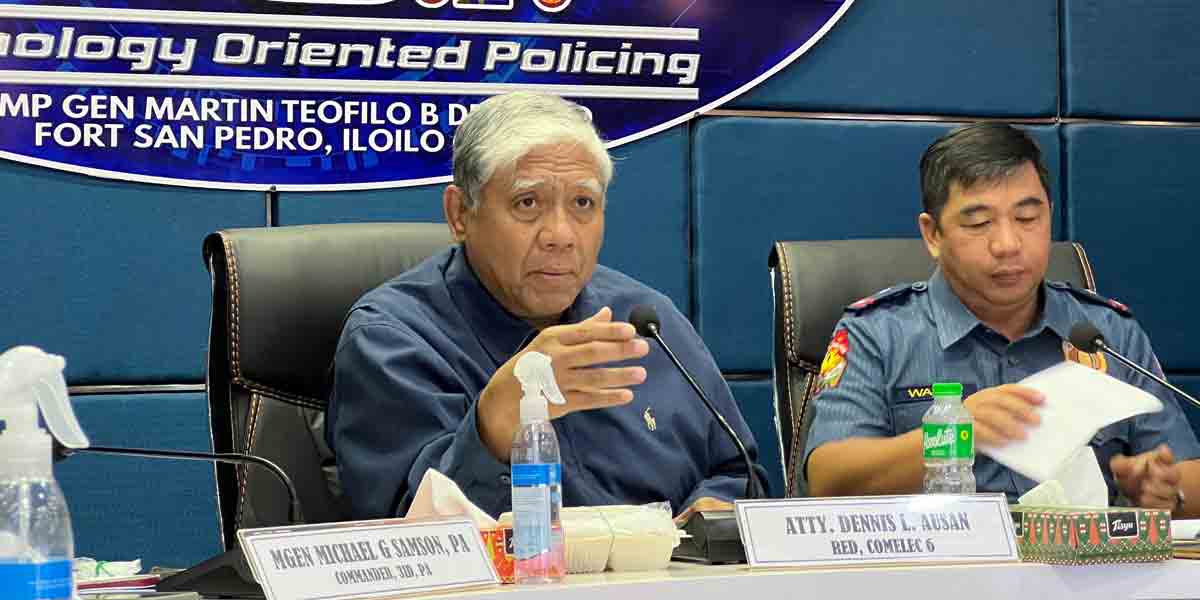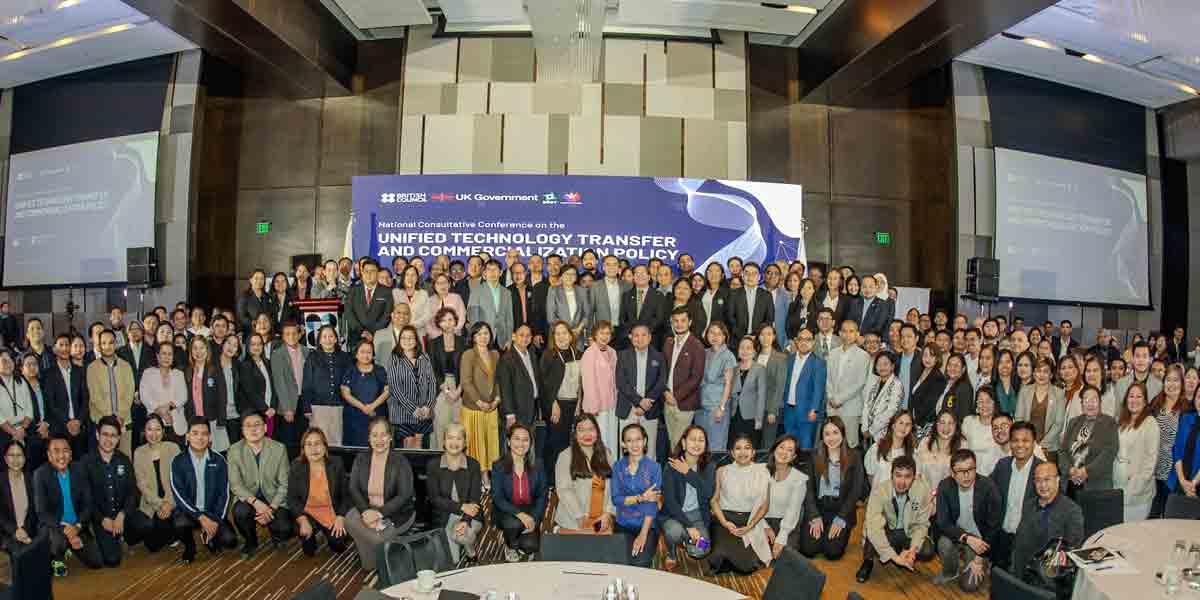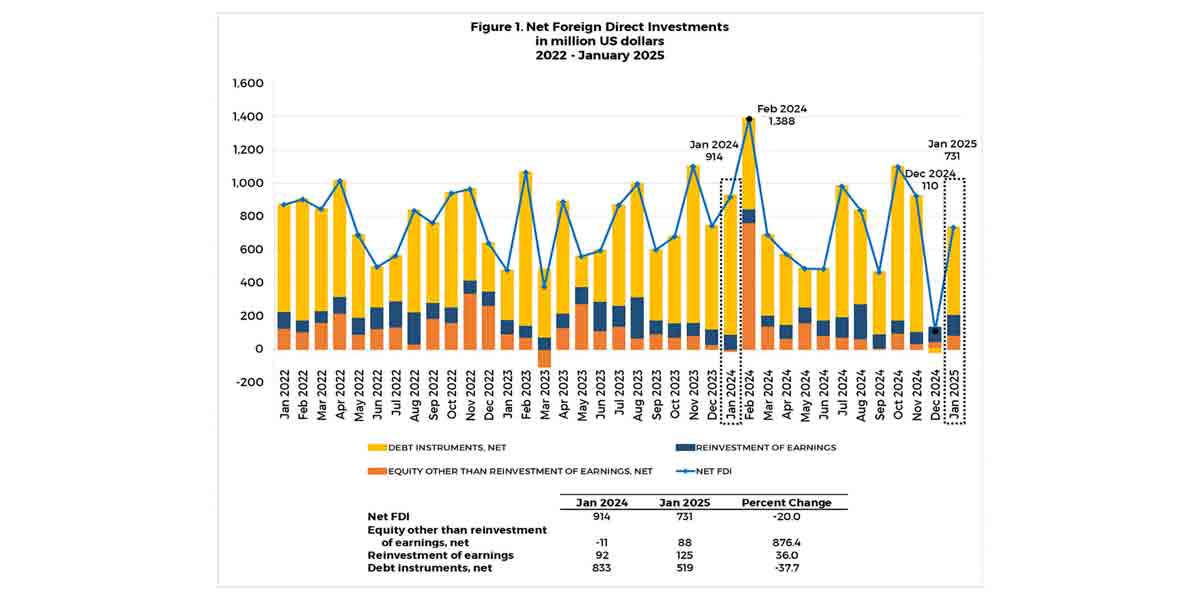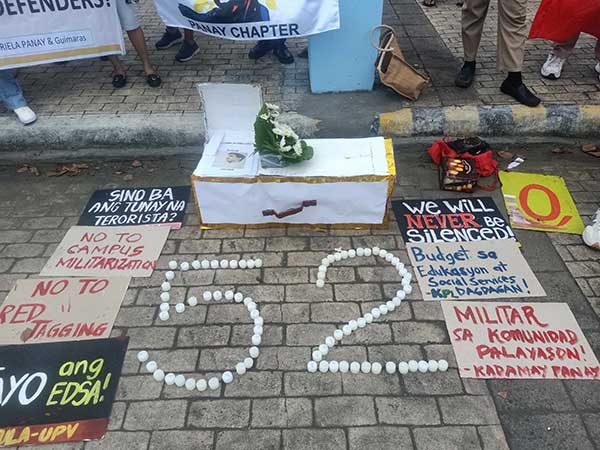
By Juliane Judilla and Joseph Bernard A. Marzan
Hundreds gathered across the Philippines to commemorate the 52nd anniversary of the declaration of Martial Law on September 21, 1972, amid ongoing efforts to address historical revisionism of the Ferdinand Marcos Sr. regime.
In Iloilo City, a forum at St. Clement’s Church in La Paz district reflected on the economic and political repression during the dictatorship of Ferdinand Marcos Sr. and its parallels with the current administration of his son, President Ferdinand Marcos Jr.
Rev. Msgr. Meliton B. Oso, director of the Jaro Archdiocesan Social Action Center (JASAC), opened the forum, emphasizing the importance of remembering the atrocities of Martial Law.
Peasant leaders Lucia Capaducio of Paghugpong sang Mga Mangunguma sa Panay kag Guimaras (PAMANGGAS) and Melbert Balbon of Pambansang Lakas ng Kilusang Mamamalakaya ng Pilipinas (PAMALAKAYA) – Panay discussed the struggles of farmers and fisherfolk amid militarization in Panay.
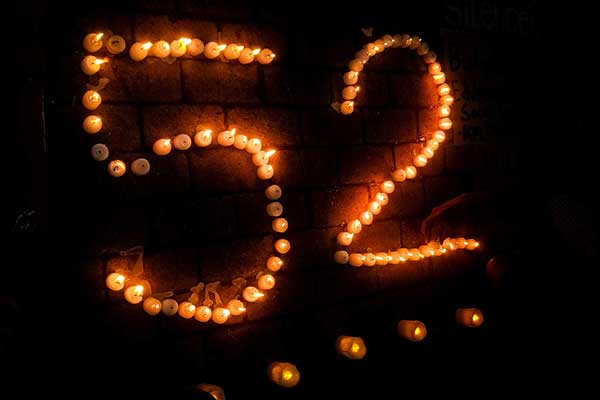
Robert Ventura of the Iloilo Public Utility Vehicle Association (IPUVA) shared the impact of the Public Utility Vehicle Modernization Program on drivers and commuters.
Thea Kryshna Dayata, regional coordinator of Kabataan Partylist-Panay, highlighted the challenges faced by the youth, calling for an increased budget for education instead of allocating funds to defense and the National Task Force to End Local Communist Armed Conflict (NTF-ELCAC), which she said red-tags youth organizations.
Farmer Juanito Saul from San Miguel, Iloilo, recounted the oppression his community faced after their lands were sold to the Villar Group of Companies.
The forum, organized by the Movement Against Tyranny (MAT), concluded with a march and candle-lighting ceremony at the Iloilo Provincial Capitol.
METRO MANILA
In the capital region, demonstrations in Manila and Quezon City honored victims of the Marcos regime, with survivors recounting their experiences at separate events held at the Bantayog ng mga Bayani and the University of the Philippines (UP) Film Institute.
Egay Cabalitan, secretary-general of the Philippine Alliance of Human Rights Advocates (PAHRA), said, “The Marcos dictatorship left a trail of human rights violations that continues to haunt the nation.”
He noted over 40 cases of enforced disappearances under the current Marcos administration.
The UP Film Institute event, featuring the documentary 11,103, was attended by students and human rights advocates.
Judy Pasimio, spokesperson for In Defense of Human Rights and Dignity Movement (iDefend), compared the current administration to that of Marcos Sr., citing ongoing cronyism, corruption, and exploitation of natural resources.
MARTIAL LAW LEGACY
Ferdinand Marcos Sr. declared Martial Law on September 21, 1972, formally announcing it two days later.
His 14-year rule was marked by 3,257 extrajudicial killings, 35,000 tortures, 737 disappearances, and 70,000 incarcerations, alongside a display of immense wealth by the Marcos family.
From 1986 to 2023, the Presidential Commission on Good Government recovered P280 billion in ill-gotten wealth.
In a recent ruling, the Supreme Court voided a 1978 contract between Marcos Sr. and the Philippine Tourism Authority over land where the Malacañang of the North, a presidential museum, is located, ruling it part of the public domain.


